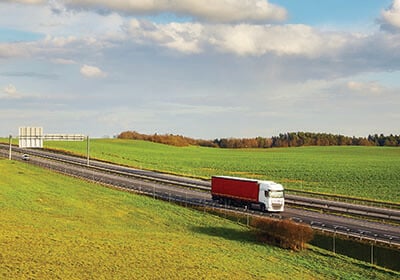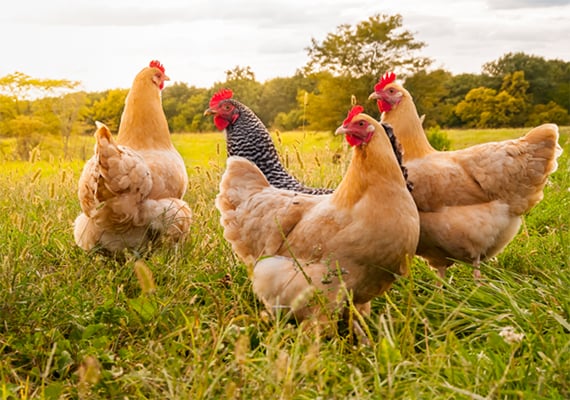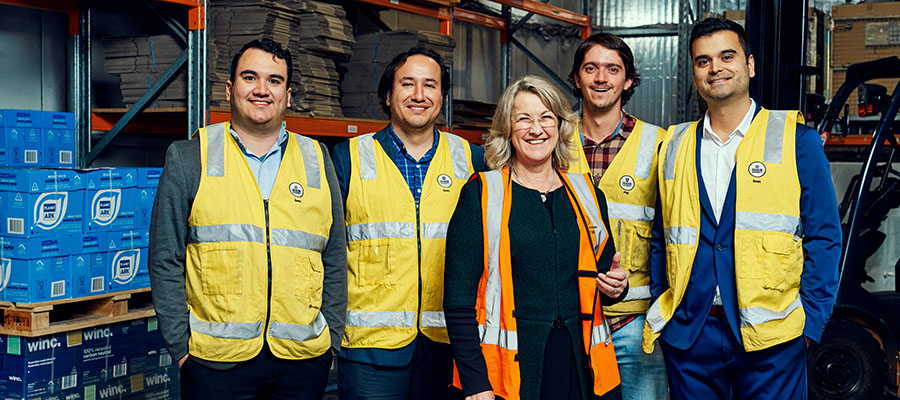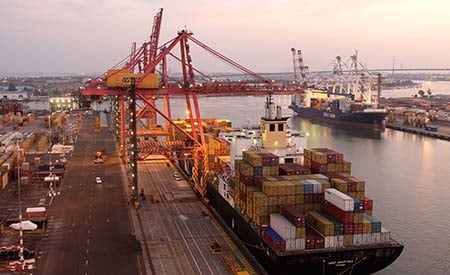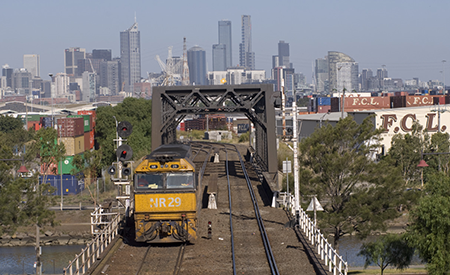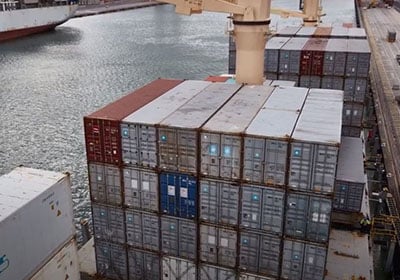Gunaskera, D 2018, ‘Bridging the energy and meteorology information gap’, in A Troccoli (ed), Weather & climate services for the energy industry, Palgrave McMillan, doi: org/10.1007/978-3-319-68418-5_1.
Gunasekera, D, Parsons, H & Smith, M 2017, ‘Post-harvest loss reduction in Asia-Pacific developing economies’, Journal of Agribusiness in Developing and Emerging Economies, vol. 7, no. 3.
Gunasekera, D & Parsons, H 2017, ‘Freight transport and logistics services: emerging issues’, Improving Service Sector Productivity: The Economic Imperative, Committee for Economic Development.
Elphick-Darling, R & Gunasekera, D 2017, Study on the Application of Global Data Standards to APEC Supply Chain Connectivity (Phase 1), Austroads.
Elphick-Darling, R, Gunasekera, D & Ghalebeigi, A 2017, Investigating the potential benefits of enhanced end to end supply chain visibility, AgriFutures Australia.
Elphick-Darling, R, Gunasekera, D & Ghalebeigi, A 2017, Diversity in decision-making in rural industries, Canberra, ACT, Australia: Rural Industries Research & Development Corporation.
Elphick-Darling, R, Gunasekera, D & Ghalebeigi, A 2017, Cold chain distribution capability assessment for selected markets in China, Meat and Livestock Australia.
Newth, D & Gunasekera, D 2018, Projected Changes in Wet-Bulb Globe Temperature under Alternative Climate Scenarios, Atmosphere, vol. 9, no. 5, pp.187. Available at: https://doi.org/10.3390/atmos9050187.
Gunasekera, D, Manton, M and Zillman, J 2018, ‘Threat to data integrity and international exchange’, Bulletin of the American Meteorological Society, 99(11), pp. 2206–2207 https://doi.org/10.1175/BAMS-D-18-0163.1.
Newth, D and Gunasekera, D 2018, ‘Projected Changes in Wet-Bulb Globe Temperature under Alternative Climate Scenarios’ Atmosphere, 9, 187; doi:10.3390/atmos9050187.
Perez-Franco, RJ and Phadnis, S 2018, ‘Eliciting and representing the supply chain strategy of a business unit’, The International Journal of Logistics Management, https://doi.org/10.1108/IJLM-05-2016-0128.
Opinion: Another disruption in the global container supply chain
29 March 2021, Daily Cargo News
Mr Peter Van Duyn posted his opinion article in the DCN regarding the giant containership blocking the Suez Canal. On top of the recent disruption caused by the COVID-19 pandemic and thousands of containers being lost overboard in the North Pacific, another incident with a large container vessel is causing further disruption to the delivery of containerised goods, including supplies of urgently required medical equipment and personal protective gear.
Read the full article
Also featured in:
It’s time to rethink the image
18 March 2021, Daily Cargo News
Dr Patricia McLean explained why the supply chain presents a future-proof, dynamic and exciting career opportunity.
Read the full article (pages 54 to 56)
Is the North Pacific the Bermuda Triangle for containers?
12 February 2021, Daily Cargo News
Mr Peter van Duyn expressed his views in relation to a spate of containers being dislodged or damaged on-board container vessels transiting the North Pacific Ocean.
Read the full article
‘Huge piece of work’: The challenges facing the vaccine rollout
5 February 2021, Australian Financial Review
As Australia prepares to deliver coronavirus vaccines, experts say the long distances, manufacturing constraints and even vaccine ‘snobs’ could cause headaches. Dr Hermione Parsons was interviewed by reporter Finbar O’Mallon from AFR, to comment on the distribution of COVID vaccines.
Read the full article
New digital Career Map to combat the supply chain talent shortage
October 2020, Deakin University Media Release
A looming capability shortage in supply chain and logistics in Australia prompted the development of a career mapping tool to encourage a new generation of talent to enter this booming sector. The digital Supply Chain Career Map showcases more than 150 supply chain roles in 18 sectors, linking jobs to qualifications (from certificate 4 to masters degrees), years of experience, and indicative salary. Dr Hermione Parsons, Director of CSCL and Co-Chair of Wayfinder: Supply Chain Careers for Women, an industry sponsored initiative established to increase diversity in the supply chain sector, said the Supply Chain Career Map aims to show people the huge range of career opportunities available. It also allows people to see supply chain and logistics as an interesting profession with a great future and not just ‘fall into it’ career as has been the case so often in the past.
Read the full Deakin media release
Also featured in:
The future of electric aviation in Australia
September 2020, Deakin University Media Release
Deakin University has released a white paper that evaluates the opportunities and next steps for Advanced Aerial Mobility (AAM) in Australia, focusing on electric Vertical Take-Off and Landing (eVTOL) aircraft in the passenger and freight context. The latest instalment in the Deakin Mobility series, the study is a collaboration between the Institute for Intelligent Systems Research and Innovation (IISRI) and the Centre for Supply Chain and Logistics. It is the first and most comprehensive literature review and study of this nature, and analyses the regulatory challenges, operating potential and likely benefits of AAM and eVTOL.
Read the full Deakin media release
Explainer: What is the latest waterfront dispute about?
30 September 2020, The Conversation
Mr Peter Van Duyn was the author of the article to highlight a new industrial dispute on the waterfront and what it could mean for medication and food supplies. 22 years ago, images of balaclava-clad security guards with German shepherds, locking out wharfies at the Patrick container terminals shocked the nation. With a fresh industrial dispute underway at the Patrick container terminals, are we on track for another war on the waterfront?
Read the article
Also featured in:
National traceability program to build trust in Australia’s food supply chains
June 2020, Deakin University Media Release
Australia’s food safety systems will be strengthened by the delivery of a new national implementation program to help track and trace food products from farm to fork in domestic and export markets. The program will help supply chains achieve end-to-end traceability and lift capability across the sector from small producers and manufacturers to large-scale enterprises, and includes an Australian-first Implementing Food Traceability Guide, plus Product Specific Guides and Industry Demonstrations to enable greater visibility along the entire food supply chain.
It provides Australian companies with an easy to follow guide to assist them with mapping critical traceability events across the supply chain and enhances Australia’s food supply chain integrity in a seamless whole of supply chain system with global data standards and language that will enable information to be shared. Industry Professor Hermione Parsons informed the first generic traceability modules relate to On-farm Production and Exporting and encouraged organisations involved in these activities to have input to these modules.
Deakin’s media release has been placed in various trade magazines and media outlets including Weekly Times (VIC); Farm Online; Farm Weekly (NSW); ABC Rural; The Land (NSW); The Australian; Queensland Country Life (QLD); Stock & Land; Australian Poultry; Australian Cotton & Grains Outlook; DCN; FMCG; Food & Beverage Industry News; Inside Retail; MHD Supply Chain News (Prime Media); ATN – Australian Transport News; ECA News – Export Council of Australia; What’s New in Food Technology & Manufacturing Magazine; Food and Drink; Food Magazine; and Hospitality Magazine.
Read some of the articles:
Secure Supply Chains – Building safe and secure communities
July 2020, Deakin University COVID-19 research portal
Deakin’s COVID-19 research portal features a broad range of projects, media coverage and resources from researchers across the University. The content has been aligned to Deakin’s research pillars to present an integrated view of the University’s work. The information and opportunities for consideration and collaboration with other researchers with an interest in the current and future implications of the pandemic may be viewed via the link below.
Explore our research portal resources
Supply chain flaws exposed
22 May 2020, Geelong Advertiser
The COVID-19 pandemic has thrown a spotlight on the fragility of our nations supply chains and access to vital medical equipment and resources. Both the opinions of Dr Hermione Parsons and Mr Adam Voak were highlighted throughout the article. Australia cannot afford to underestimate society’s reliance on supply chains.
Read the article
Pandemic lays bare Australia’s supply chain vulnerability
6 May 2020, Daily Cargo News
Professor Hermione Parsons and Mr Adam Voak authored the industry opinion article following the situation where bare shelves at supermarkets have brought into sharp focus the issue of disrupted supply chains. Australia has created a vulnerability to unforeseen shocks to supply chains, such as those resulting from the panic buying and the lockdown in response to the COVID-19 pandemic.
